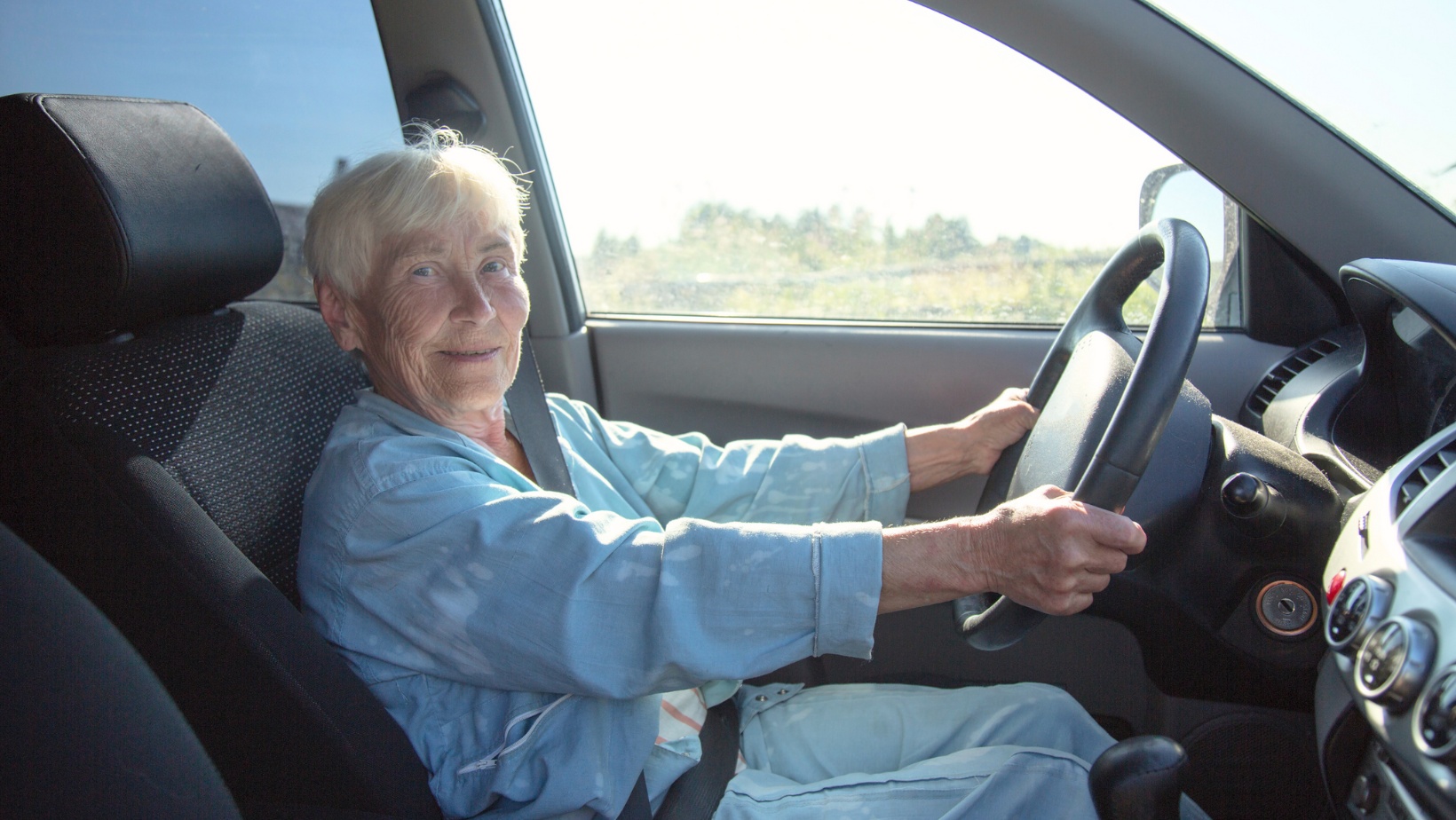Driving can be an important way for elderly members of our community to stay connected to others, attend doctor’s appointments and activities, and live a full life. However, it is also paramount to maintain safety on the road for both elderly drivers and those around them. As we age, driving becomes more risky due to a range of factors. It’s important to consider potential warning signs that an elderly person should stop driving to stay safe.
What Makes Driving More Risky for Seniors
Driving is a very complex task. It involves fine motor skills, multi-tasking, long periods of concentration and alertness. However as we age, our senses become less reliable. Many seniors experience impaired hearing or decreased vision, making them less able to identify potential hazards in their surroundings. They are also more likely to be on medications such as benzodiazepines that affect their ability to concentrate, maintain alertness and drive safely. Fatigue increases, which also affects alertness and even reaction times. It can be hard to know when it’s time to stay off the roads, but there are some warning signs that can alert us to potential risks on the road.
So here are some specific signs to look out for to check on your eldery loved one’s road safety:
5 Warning Signs An Elderly Person Should No Longer Be Driving
Decreased vision and impaired hearing
They have a physical condition that makes it less safe for them to drive.
Conditions that impair vision are particularly dangerous for people on the roads. Glaucoma, macular degeneration or cataracts are all common causes of impaired vision. If an elderly person develops blind spots in their vision, or is straining to see on the roads, then that is a cause for concern. This means that they might miss cars or other hazards which are in their blind spots.
Other conditions such as arthritis may cause stiffness, pain and lowered mobility. These are less obviously linked to driving, but can be just as concerning if they interfere with safe driving. For example, a person with pain and stiffness in their neck may not turn their head to check for hazards before changing lanes or pulling out into traffic. If somebody has developed a new condition, it is always important to take the time to consider how this may affect their safety on the roads.
Loss of strength and increased fatigue
Loss of muscle strength has been identified in elderly people, as well as increased fatigue. This may lead to difficulties maintaining appropriate posture and even turning the wheel effectively while driving. We generally understand the risks of fatigue on the road, and how it increases our risk of accidents and affects our concentration. If your elderly loved one is showing signs of severe fatigue, especially related to driving, then it is appropriate to assess whether that is still a safe choice for them.
Cognitive changes – multitasking and reaction times
Geriatricians – doctors who work with elderly people – have estimated that from 50-60 years old, people have a lowered capacity to multitask and divide their attention. Other neurodegenerative conditions such as dementia can also lead to lowered cognitive capacity and quick reaction ties.
This is a concern because driving is a complicated task requiring a lot of multitasking and dividing your attention between multiple things at once. It also requires quick reaction times, such as braking on time for an orange light, or swerving to avoid a hazard. For example, if an elderly person confuses the brake and acceleration pedals and does not remedy the error quickly enough, that can lead to a serious accident.
Close calls – they don’t want to drive at night
If a senior driver you know has mentioned experiencing close calls – or you have even witnessed close calls as a passenger, then that is a warning sign that they should no longer drive. A lot of near-misses is a warning sign, because it is likely to mean that they are becoming more accident prone. This also applies if you see them demonstrating extreme hesitancy to drive in certain circumstances, such as avoiding driving through busy intersections or driving at night.
This is a potential sign that they do not feel safe navigating these situations anymore and that they need to avoid driving altogether for their safety.
Their car has new unexplained dings and scrapes
If you notice that their car has unexplained scrapes, dings or other damage, that is a big warning sign that they are no longer able to safely gauge their surroundings and that they have already experienced several minor incidents. This is a warning sign that they should no longer be driving, as this indicates an underlying problem that you may not have previously identified. This is something to pay close attention to as a reliable warning sign that somebody may no longer be safe.
These warning signs may mean that an elderly loved one should stop driving, but it’s important to assure that their needs are still met so that they can live active, fulfilling lives. Consider alternative arrangements such as public transport, taxis, or a support worker who is able to accompany seniors safely to appointments and social activities.
Disclaimer
All information is general in nature.






